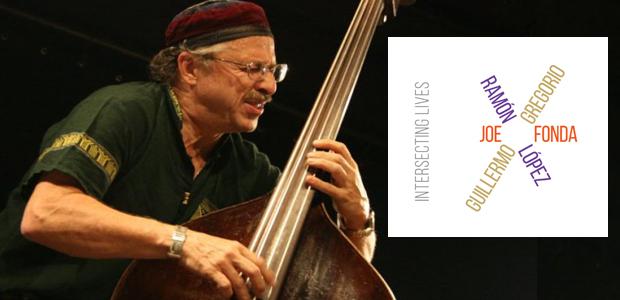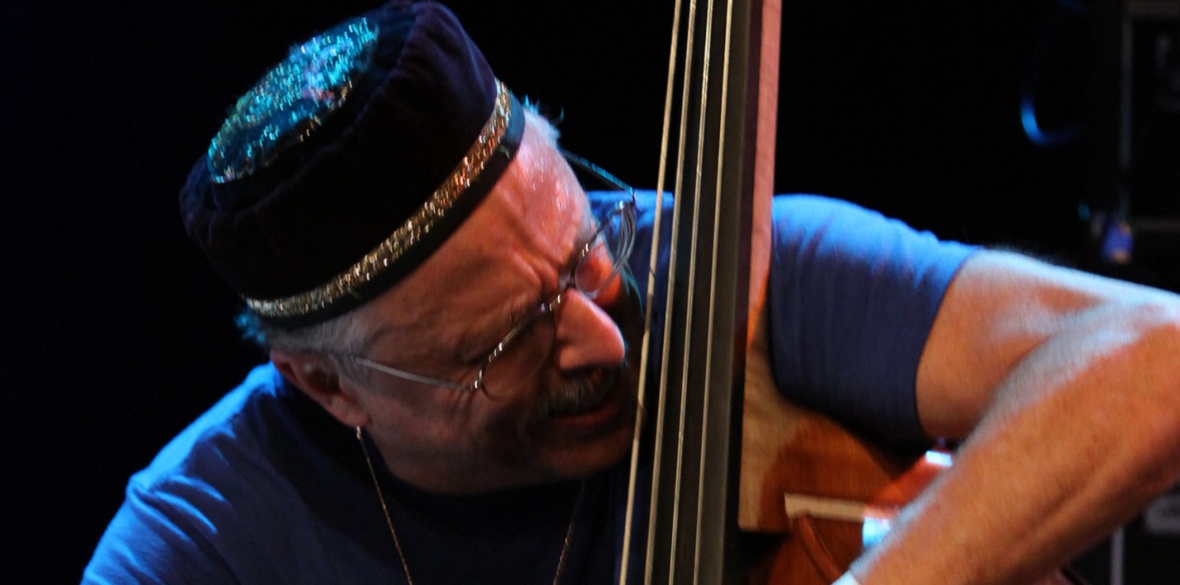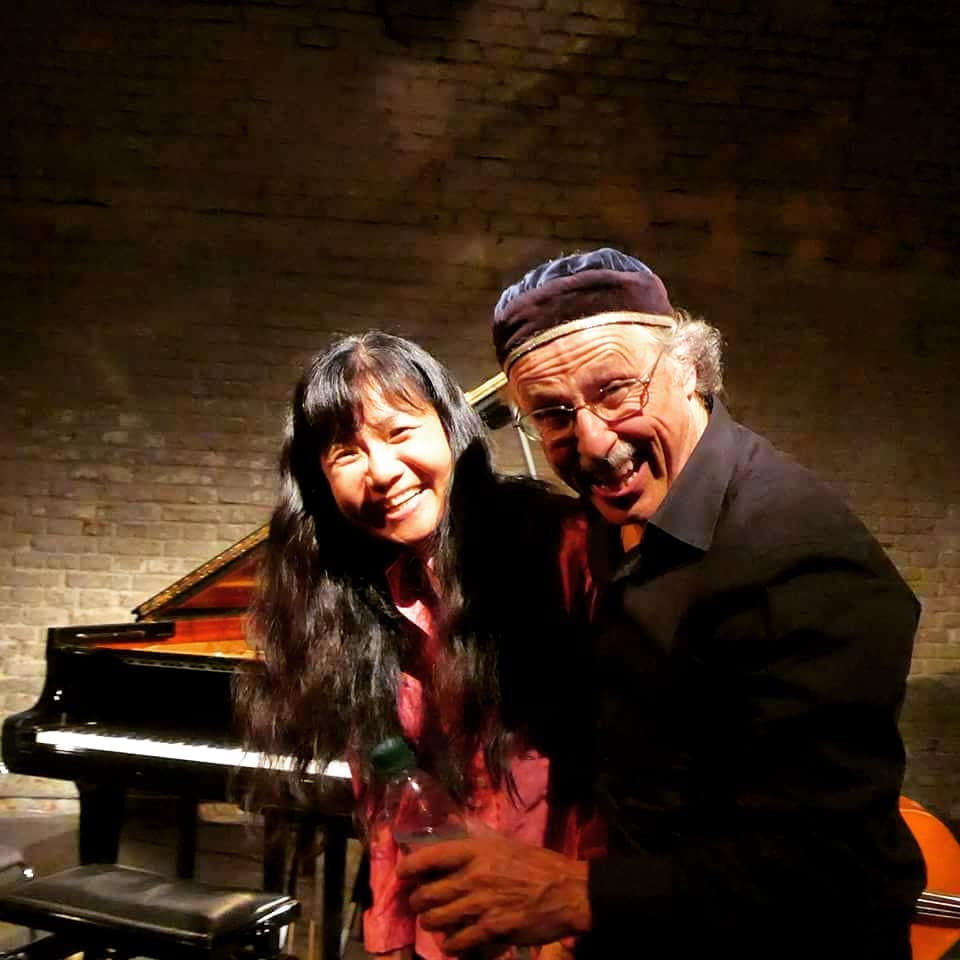Joe Fonda: it's all rooted in the passion

Joe Fonda is an American bassist and improviser. In those strange, pandemic times I talked to him about situation of musician’s in pandemic times, his cooperation with Anthony Braxton and multi-dimensional approach to improvisation.
How COVID-19 affects your work, plans and everyday life? What do you think: will the music world change after this pandemic in any way?
It's still too early to say whether COVID-19 will truly be a pandemic. The death toll has too far exceed the normal death toll in a given year for the flu, which it has not yet. No doubt this is very serious right here in New York we have many sick people and it is a new strain of the Coronavirus that has never been in the human system. So I would say in 2 or 3 weeks we will have a better idea of just how bad it's going to be here in the US and in the rest of the world. I feel for Italian brothers and sisters right now; they are really suffering, they've been hit the hardest .I'm waiting to read something from experts regarding whether there are political reasons this epidemic is here. We know the dollar is in serious trouble as a global currency. We know the Chinese are coming close to finishing their Silk Road which makes many in the West nervous. So these answers I have yet to really find. I'm just questioning, which is something we all need to do. But one thing is for sure: the lives of artists have changed completely. Nobody is working, all the concerts are canceled and who knows when normal life will return and when it does, who knows exactly what it will look like. The other thing is that this has slowed the planet down to a point where we are no longer destroying the very world we live in, at least not at the same pace. Like the article I saw regarding the channels in Venice Italy because the boats stopped running the water changed back to the color of blue instead of brown and the Dolphins began to swim in the channels once again which hasn't happened in years. We all know mankind is destroying the planet. Unfettered capitalism and the neoliberal experiment and the belief in unregulated markets is a complete failure it has to come to an end. Maybe this is the beginning that change. Last year I read a few articles about the reality of the neoliberal experiment. Articles by men from Wall Street who have even said it's a failure and the only choice we have is to take the progressive route that is being offered by some alternative people on the planet. So even those who have created it are beginning to say it's a failure. So my hope is that, this will be the silver lining in the cloud. We're headed for some hard times. I don't know where are we going to end up.
 In Poland, during the time of covid-19, the situation of musicians is truly hopeless. Their concerts have been cancelled up until the end of April. Most of them won’t get any money, because they don’t have any contracts and usually they get money only after concerts. Is the situation in the U.S. similar? Is government helping musicians in any way?
In Poland, during the time of covid-19, the situation of musicians is truly hopeless. Their concerts have been cancelled up until the end of April. Most of them won’t get any money, because they don’t have any contracts and usually they get money only after concerts. Is the situation in the U.S. similar? Is government helping musicians in any way?
I've heard some governments are doing something for their artists. I don't know what's going on in Poland but generally artists are the last ones to be considered. I know there's some private foundations in America that I did apply to for financial help and I received some financial support just today. I spoke with some of the promoters in Germany that I was to be working with next month. One of them was able to offer the musicians whose concerts were canceled some financial support that was very encouraging. I believe that is the case in Austria as well.
Last year, you’ve released an album with a vocalist Vesna Pirasovic. What do you think: why avant-garde jazz instrumentalists collaborate so rare with vocalists?
Your third question about the recording with Vesna. First of all I like the recording a lot John Betch the drummer has always been one of my favorite drummers Gebhard Ullmann is one of my old musical colleagues and a brilliant musician. Vesna is a fantastic singer who wants very much to be a part of the jazz scene. She wants to be part of that music and is working very hard to develop her own personal voice. She picks wonderful songs to sing: the repertoire is very unique she has a very open mind and I have no doubt as time passes she will become one of the great new jazz vocalists. I find it refreshing that she's trying to sing somewhat differently than just in the tradition of the music. She's looking for ways to express herself that slightly different from the usual. She allows the musicians to shape the music and take it to places that create perhaps something unique. I would say she's trying to follow in the footsteps of the great Jeannie Lee, Sheila Jordan. For those musicians who were too young to have gone through the 60s, 70s, or 80s, they have to find their own way into that music by studying the history and looking for their own voice. It's a different process from those of us who actually went through that period and were a part of that music that was being created during those years. Vesna is in that process. It's the same as me trying to figure out how to play Bebop. I didn't go through that era, I'm too young for that. So I had to go back and study that music (and I continue to do so) to try to find a way to play it with strength and conviction, yet still have somewhat of my own voice in that context which I do at this point in time due to all the hard work and commitment I have made to that music.
You were a part of Antony Braxton band for more than 15 years. What did you gain from him? What kind of inspiration is he for you?
Yes I was the bassist with Anthony Braxton for approximately 13 years and working with Braxton was nothing short of miraculous. He is a musical genius. His music is a universe in and of itself. You never stop learning the music or stop working on it, because it's forever challenging. His creativity is so abundant. Being around somebody like that who can manifest his creativity right in front of your eyes is inspirational and very informative about the process of creating music. As a composer there's no words to describe his prolific personality. Every time we would do a performance he would bring a new piece of music with new ideas, new concepts .I was part of the Ghost Trance Band and this was the music we worked on primarily for 10 years and every time we had a new performance he brought a new Ghost Trans composition which had new elements in it for you to deal with. Incredible, truly incredible .

During your performance with Satoko Fuji on Jazz Jantar (Gdańsk, Poland, November 2019) at the end you started to sing. Is it a constant part of your performances?
My singing and my vocalizing during performances is something I often do because I am a singer. I actually think of music in that way: it's about what can be sung, but I don't predetermine that either. I only sing when I feel. So it's not something we set ahead of time or that we say: “Joe is going to sing in the second set”. If I feel it then I can do it, otherwise I can't and its only something I do when the inspiration comes to me. I came up as a blues and R&B musician so that music is sung and that music is my roots and I'm still involved in it and that's where the vocalizing truly comes from.
Do you like improvising in duos?
Improvising in a dual context is challenging in special ways you're more vulnerable, you're more naked in a certain sense and you have to stay focused and centered at every moment of the performance. I enjoy playing in a duet because it is a challenge and it also allows for the music to move slightly more fluid, I would say. But I also enjoy playing in a quartet like what The Fonda Stephens group or Conference Call. The energy is different to. The energy in a duet is not so intense. It's more subtle and might have a spiritual vibe in it. Where a larger group tends to have that big deep power, the collective focus, the groove as we say.
You seem to be extra expressive during your playing. How is it in everyday life?
One of the reasons I believe I'm so expressive when I play is the passion I bring to the music. It's always been about passion for me, so when I play I am 100% lost in the music and I'm dancing when I'm playing. There is a process where I feel like I'm in the dance so my movements, the way I sway and the expressions on my face are part of a dance, and again, it's all rooted in the passion I bring to the music.
Your music is full of improvisations. Could you please tell us about the process when composed things transform into improvisation?
Of course there are many ways of incorporating compositional elements of the music into the improvisational elements, or mixing the two. With Satoko we just started adding some compositional elements in our last two performances. What we decided to do was have some very simple themes that any one of us could play at any given moment during the improvisation. Anybody could start it and then the other person could join and we would play the theme for as long as we wanted and then let it go and move on. This is one approach it's kind of like springboard's or you hit the spot, jump on the board and you bring from there to a new spot. In some of the music I play the composition comes before the improvisation and in a case like my duet with Satoko, it's the other way around: the improvisation comes first and the compositional elements come after or during the improvisation. So there is no one way to do it and I enjoy them both especially if the compositions are inspired and interesting as well as the improvisation for that matter.
Recently, you’ve recorded the trio album with Guillermo Gregorio and Ramon Lopez “Intersecting Lives”. How your cooperation had begun?
The trio with Ramon and Guillermo came about by accident .Guillermo is now living in New York City and we were playing together for about 6 months, just the two of us, actually mostly rehearsing his compositions as I found them very challenging and very interesting. I really like the lines that he was writing. They were atonal, very challenging intervals. It had reminded me a little bit of my work with Anthony Braxton. Ramon is an old friend, a great drummer who I have played with in different contexts. He was coming to New York to do some concerts with different people as well as Guillermo. So for some reason we thought, why don't we try some things as a trio, and it worked perfectly well. I really like this recording with Ramon and Guillermo. Ramon is the perfect drummer; nobody could have played his compositions like he did. He is brilliant.
You collaborate with many people from different countries in Europe. How do you manage to do this? What is the most difficult thing during those collaborations? And what is the most precious thing about it?
Yes, I do collaborate with many people from all over the world: China, Japan, Poland, Argentina, Spain, France, Germany, Canada. The thing that's so rewarding about that is that you are working with people from different cultures, people from different backgrounds. In each one of them bring a different sensibility, different mentality, often a different feel to the music. You learn from others who have different ways of hearing, seeing, and doing things. This is the priceless gift that it gives each one of us. The biggest challenge is to generate enough work so that we all can come together as often as possible to keep the music vital keep it alive and moving forward. If they live in New York then we can get together to play and hang out, but most of the time people are spread out all over the planet.
- Aby wysyłać odpowiedzi, należy się zalogować.







